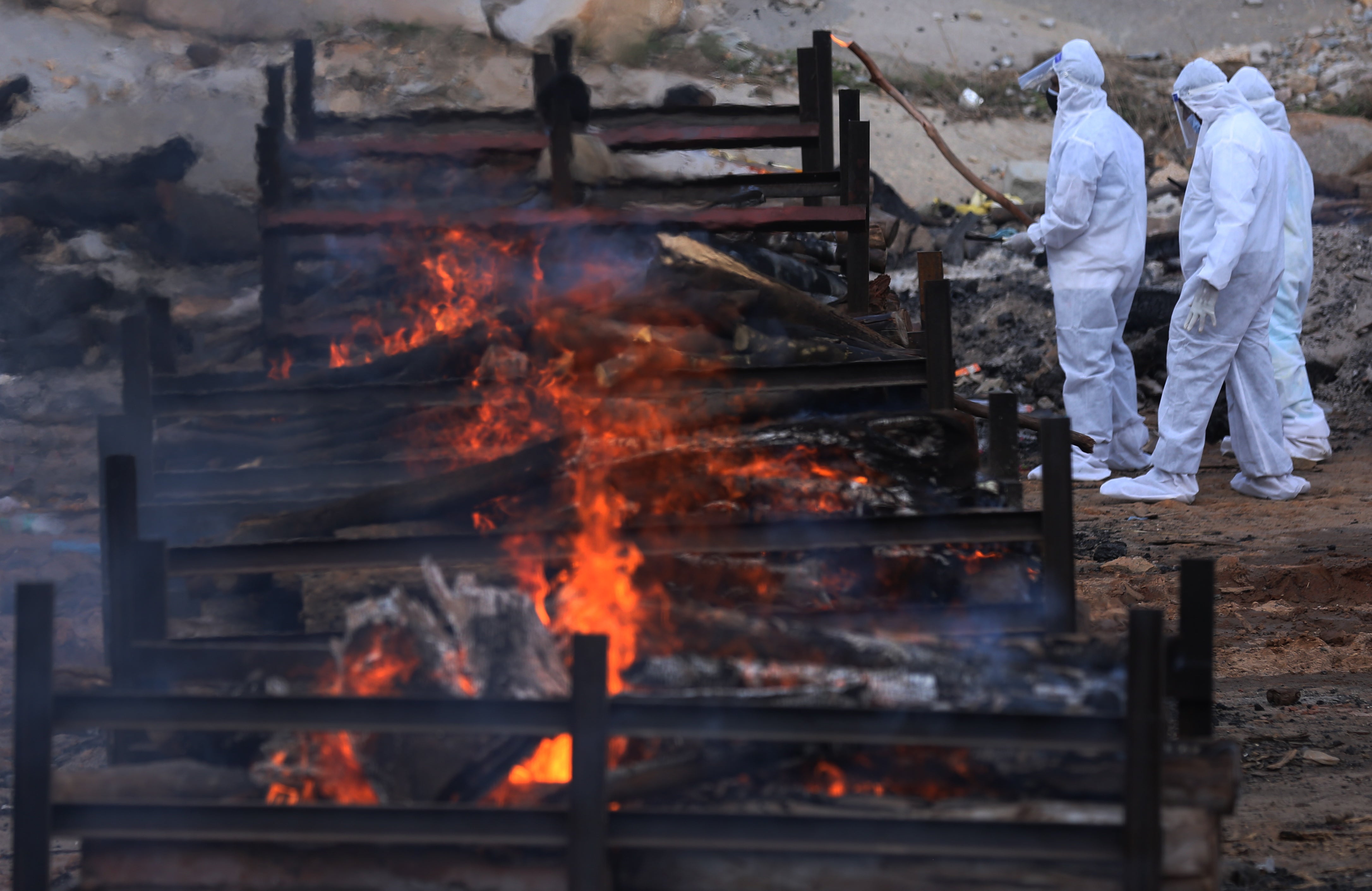Using the overseas aid budget for Covid relief is the same as robbing Peter to pay Paul
The decision to take the cost of life-saving medical equipment sent to countries like India out of the general international aid budget is shortsighted – it will only force cuts to other projects


“It’s a dereliction of duty and a failure of leadership and a moral error of judgement.”
Close your eyes and you might imagine such a barbed attack levelled at the government from a leading opposition politician. But the opposition to cutting the international aid budget is coming from within the Conservative party. And that should worry Boris Johnson.
It was former international development secretary Andrew Mitchell who led the charge on last night’s Channel 4 News, after we reported that the cost of donating supplies such as PPE, oxygen generators and ventilators is coming out of the government’s dwindling aid budget.
He pointed out that the UK should carry great clout overseas, chairing the G7 inter-governmental summit in Cornwall next month, and hosting the Cop26 climate change meeting in November. “Britain is on show. Britain is one of the five permanent members of the United Nations security council. We’re supposed to set a lead. And yet we are the only G7 country that is cutting aid. Every other one of the G7 is either standing by it or increasing their commitment,” he said.
I’ve rarely seen a senior Tory so incandescent. And he’s not the only one. MPs up to and including members of the cabinet have told me of their concern that the decision to take the cost of life-saving medical equipment sent to countries like India out of the general international aid budget will force yet more cuts to other projects.
Anthony Mangnall, a Conservative backbencher who sits on the International Trade Committee, told me: “It’s hugely impactful on our aid programmes because we have a set structure with a range of different projects that we fund and suddenly throwing in medical aid and assistance to countries around the world jeopardises the future programmes that are currently running.”
The aid budget has already been slashed by £4bn because of the Treasury’s decision to cut it from 0.7 per cent to 0.5 per cent of gross national income. It’s a breach of the manifesto commitment, even though Downing Street has suggested it’s a temporary cut.
But MPs and ministers had hoped the Covid assistance being sent to developing countries would be in addition to other aid, rather than putting further pressure on projects already at risk.
Instead, one member of the cabinet said discussions between departments about how to stay within the 0.5 per cent cap had “complicated” what should have been a straightforward offer of help to save lives.
Whitehall sources have suggested the health department wanted to send 1.6 million pieces of PPE to India. The equipment was about to expire, but the Foreign Office last night denied that it was held up by inter-departmental wrangling, saying instead that India had not wanted the PPE.
Perhaps that little local difficulty was resolved to the satisfaction of all concerned. But elsewhere, the consequences of Treasury spending constraints are already being felt around the globe.
As my colleague, Channel 4 News’ health and social care editor Victoria Macdonald, reported last night, the government’s aid cuts have already seen international schemes to train nurses, fund children’s cancer services and reduce sepsis in new mothers axed.
Many Tories proclaim that slashing billions from aid is popular with the British public. And yes, the aid budget still exceeds £10bn – a sum described by the health secretary Matt Hancock as “very generous”.
I quizzed Hancock about the story at Wednesday’s Downing Street press conference. He confirmed what had horrified some of his backbench colleagues that “of course” Covid help counts as overseas development aid, “because it is”.
Incidentally, I only managed to get a detailed answer by sneaking in a quick follow-up question (something that’s essential for any journalist but has become increasingly tricky in this age of sterile Zoom press conferences) about the knock-on impact on other aid projects.
It’s true, the odd million here and there might seem like small change in a budget of billions, but this will add up. And there are big decisions ahead. Britain’s £548m contribution to the Covax vaccines-sharing scheme already comes out of the international aid budget. But a Foreign Office source told me there was a “philosophical debate” about whether any surplus vaccines in future would also have to come within the 0.5 per cent limit.
MPs are keen to remind the government of the now-familiar refrain that no one in Britain is safe from Covid until the world is safe. They argue that funding international development adequately is actually a down-payment on our own security.
The impact remains unclear. But I’ll be putting in Freedom of Information requests to find out. As, no doubt, will the increasingly fractious band of MPs – Mitchell and Mangnall among them – who are still pressing for a vote on the original reduction from the 0.7 per cent cap. The prime minister and his chancellor have been warned.
Cathy Newman presents ‘Channel 4 News’, weekdays, at 7pm
Join our commenting forum
Join thought-provoking conversations, follow other Independent readers and see their replies
Comments
Bookmark popover
Removed from bookmarks